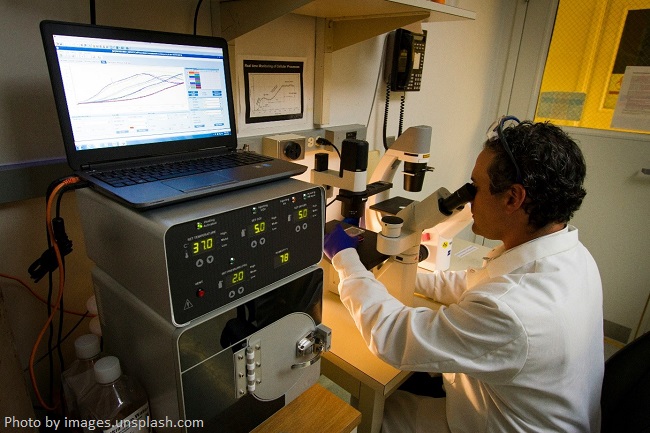What are the trends in the chemical industry regarding generative AI?
The chemical industry was facing multiple crises during the last years, starting with the COVID pandemic and the related low oil prices, followed by high inflation and recession. To escape this volatile situation companies are exploring new trends for chemistry, including sustainability, circular economy and most prominently the use of artificial intelligence. AI can be implemented in many areas of the chemical industry and many companies are already using it as a report by IBM showed. The most prominent area is of course research and development, but also in product manufacturing, risk management, forecasting and other areas AI can be utilized and is already utilized right now. The most prominent implementation area for AI was herein the use of AI to discover new materials with 42% of companies confirming that AI already helps them in their invention process. This helped AI companies with the launch of new products with new customer benefits, where they were successful in 90% of all cases compared to 69% of non-AI using companies. And especially when developing disruptive products the success rate by the use of AI skyrocketed to 96% compared to a mere 51% for classical chemistry companies.
Application areas of Generative AI in chemistry
Today R&D in the chemical industry and chemical material sciences are often still conducted manually and with a large number of experiments, therefore this area is also called empirical science. Here, generative AI can assist R&D by predicting the most promising drug or material candidates with the needed properties. Additionally, literature searches to identify relevant information for the creation of new experimental designs and identification of new chemicals as well as the interpretation of the vast amounts of created data during R&D are often still done with relatively simple digital means. In all those use cases the power of large language models has a huge potential of raising efficiency and effectiveness.
However, generative AI can be used not only in the search for new chemicals, but also in the optimisation of various manufacturing processes in the chemical industry. Scaling chemical processes, which are tested on a lab scale, up to pilot scale and even industry scale is a complicated process, which creates many challenges for companies related to high production volumes, quality control and safety. Also here generative AI can help to identify configurations and parameters optimal for industry scale processes and support the upscaling process.
Use case examples
BASF created with Rediso® an AI-based platform tailored for the home care and cleaning industry. Here customers are able to ask the AI to identify the fitting cleaning and dishwashing solutions to their individual needs as well as supporting them with estimates regarding the expected costs for their individual use case.
Dow Inc. teamed up with Microsoft to utilize the power of AI to speed up the chemical discovery process of polyurethanes drastically. This was possible by the AI-based analysis of all recorded knowledge of the company, which had to be done by manual labour before. Additionally to the gained speed also a whole new degree of customer centricity became possible through AI. This is because AI can also be used to predict the customer needs before they exist.
Bayer is using AI to improve the quality of medical trials. In this use case AI is used to pick the fitting patients for medical trials based on medical data reducing potential harm and improving quality. This new digital method may also be used to test against synthetic data, which may speed up the trial process.
Generative AI and patents
Nevertheless, when it is about patenting inventions made by generative AI many challenges still exist, which is best reflected by the Artificial Inventor Project, which is trying since 2019 to get patents granted for AI generated inventions. While part of the project relates to getting AI named as the inventor on patents, it also is about fostering innovation by making the use of generative AI in innovation more attractive. While undoubtedly many chemical companies are already using generative AI somewhere in their innovation process, the patenting of inventions which were made using generative AI remains challenging.



